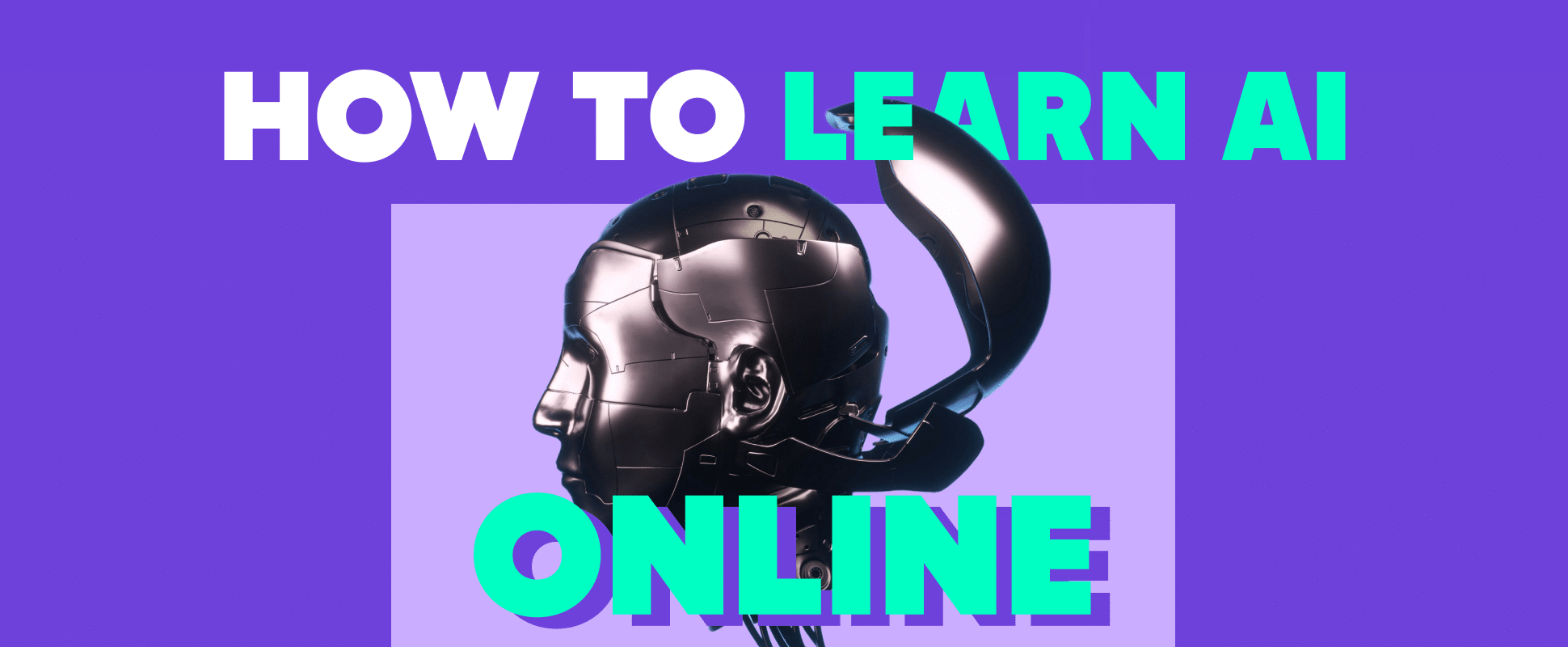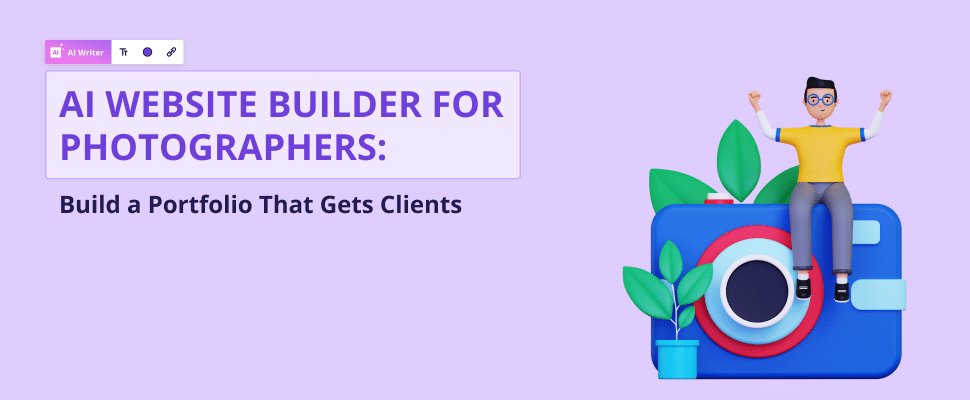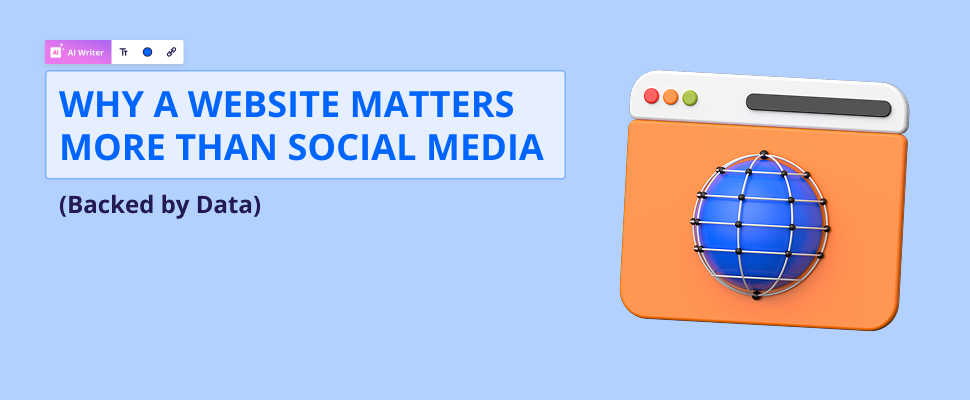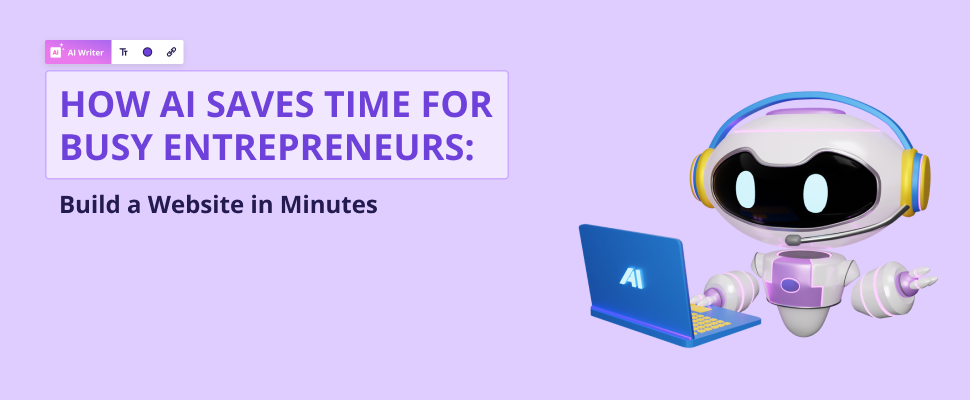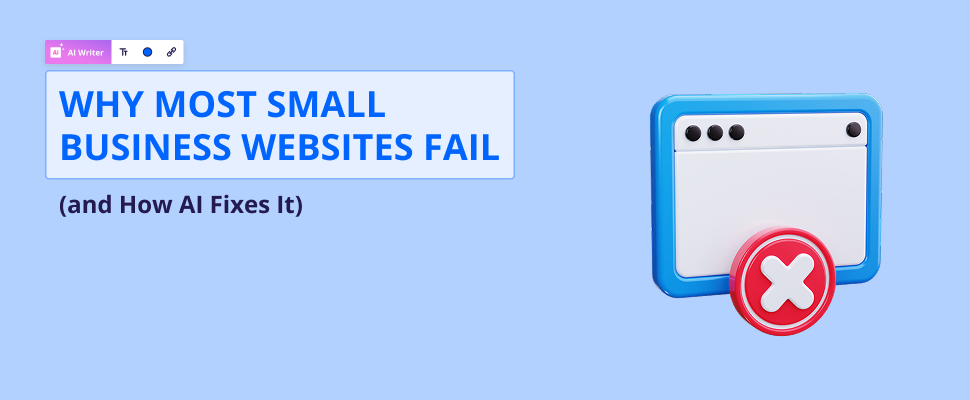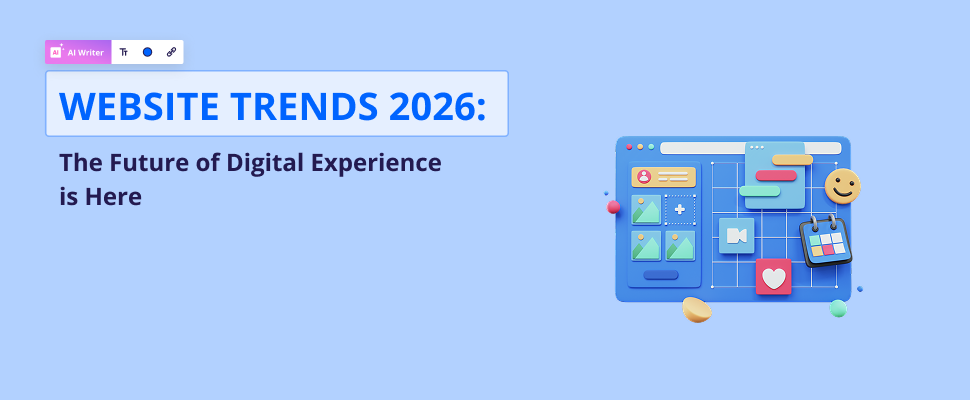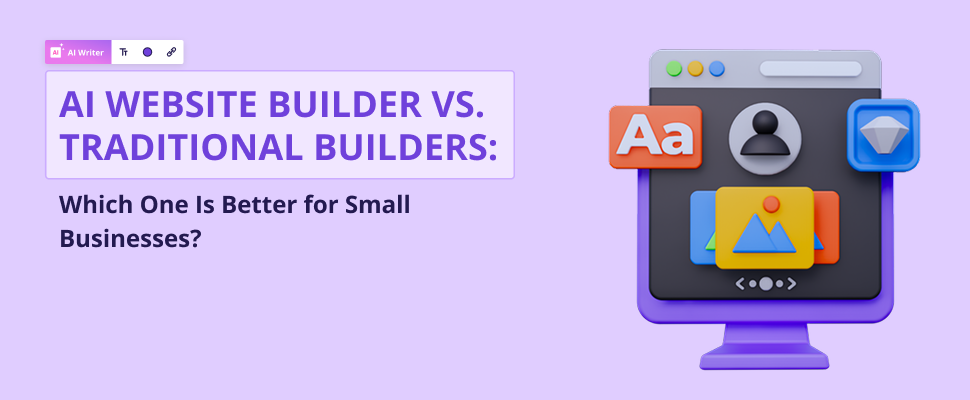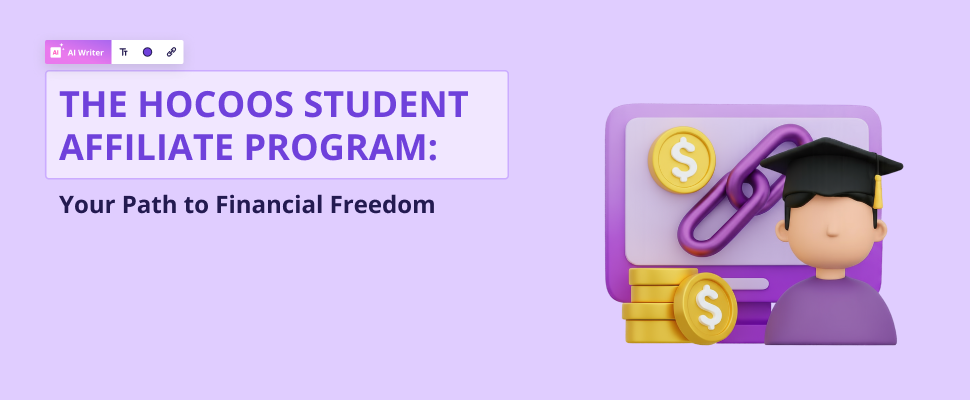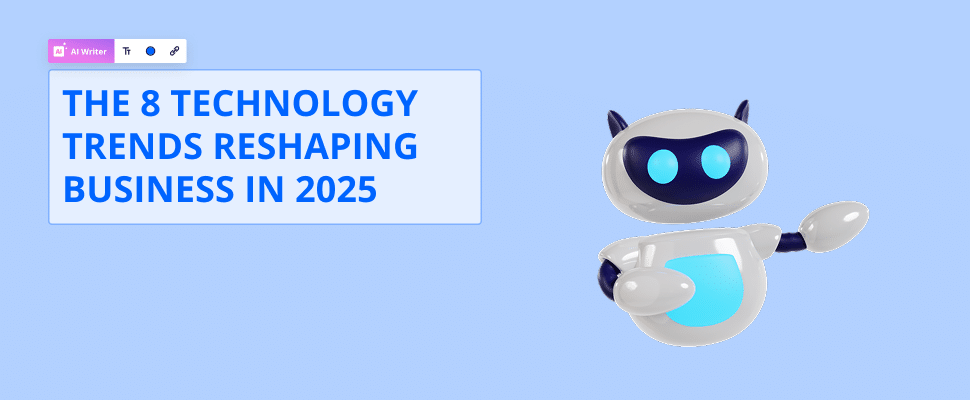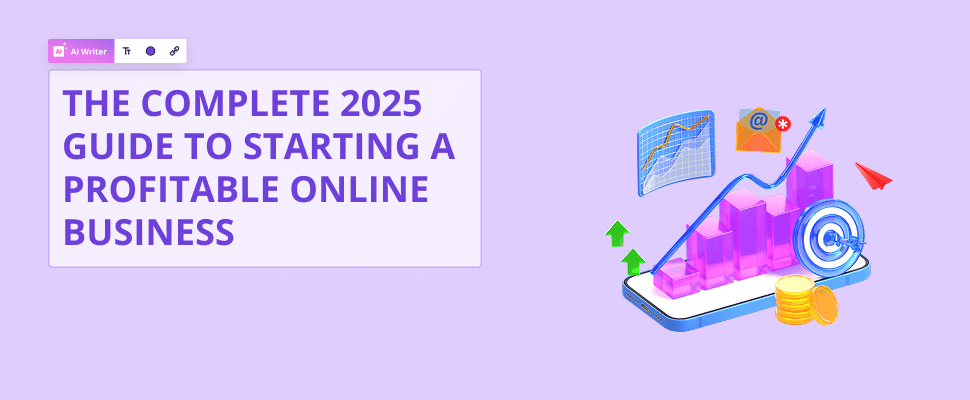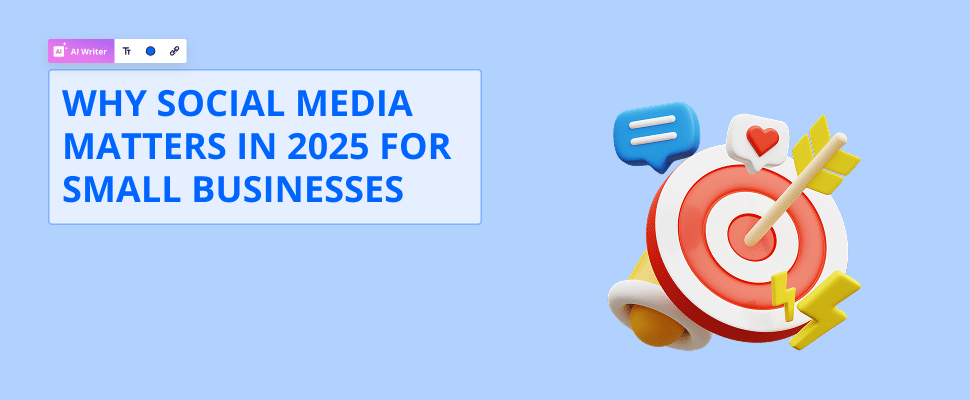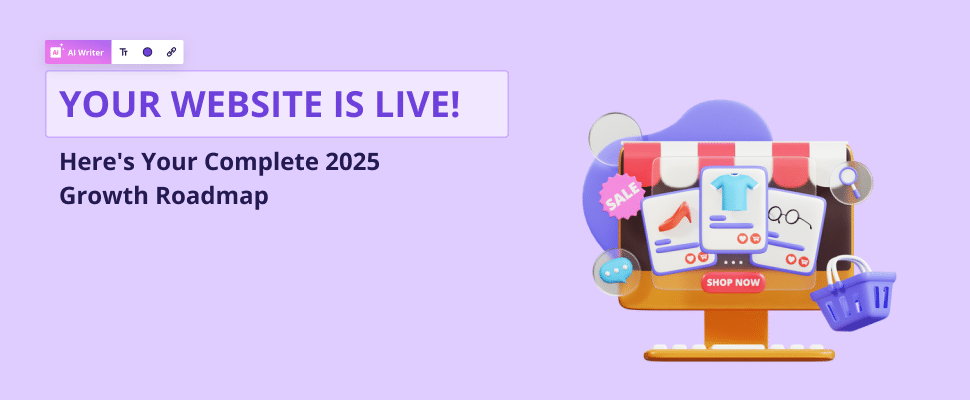
How to Maximize Small Business Growth With AI Web Tools
14 min to read
Small businesses often face growth challenges, with a staggering 20% failing within the first 1 year, partly due to unsuccessful marketing campaigns.
But times are changing with artificial intelligence. Today, businesses leverage AI web tools such as Hocoos AI Website Builder to create and optimize professional websites in 5 minutes, personalize user experiences, and grow sales.
From chatbots guiding customers to predictive analytics driving sales, AI drives business growth in unprecedented ways. Small business owners can now navigate complexities, enhance customer interactions and scale.
What are AI Web Tools?
AI web tools are digital platforms or programs powered by artificial intelligence to, simplify website creation, management, and digital marketing for small businesses. These tools leverage advanced algorithms to eliminate the need for intricate coding, making professional website development accessible to all.
The benefits of using AI web tools are enormous, here are some of them:
- Effortless website development: No coding expertise required.
- Personalized user experiences: Tailored content and navigation.
- Task automation: Increased productivity through AI-driven automation.
- Content creation efficiency: Quick and high-quality content generation.
- Search optimization: Improved search engine rankings with AI-driven strategies.
- Sales enhancement: AI-driven analytics and assistance drive increased conversions and revenue.
How to Maximize Growth in Your Small Business with AI Web Tools
Here are six effective ways to drive and maximize growth in your business using AI web tools:
1. Streamlining Website Creation and Management
From our decade of experience in digital marketing, we’ve witnessed the revolutionary impact of these AI tools on website creation and management.
Small businesses no longer need a team of web developers to establish their digital storefront; AI web builders simplify the process effortlessly. Build a beautiful website for free with Hocoos.

Whether it’s picking a layout, choosing a color scheme, or optimizing content placement, AI gives you complete control of your website.
The result?
Optimized websites that resonate with the target audience and enhance the brand’s online identity.
2. Increasing Productivity
From content creation to data analysis, AI handles the complexities, allowing employees to redirect their efforts toward higher-value activities.
Consider the time spent on routine tasks that AI can handle seamlessly. For example, scheduling social media posts manually can be very tedious.
However, An AI web tool such asPostly.aican automate this, determine optimal posting times, tailor content, and free up your time.

Automation liberates human resources. It allows us to focus on strategic decision-making, creative endeavors, and customer interactions.
As a small business owner, this means a workforce that’s not bogged down by repetitive tasks but rather engaged in activities that drive innovation and growth.
3. Enhancing Website User Experience (UX) with AI
An AI web tool tailors content to the user’s journey to help maximize engagement.
A study by Contact Point 360 found that 91% of consumers are more likely to shop with brands that provide relevant offers and recommendations. AI tools, like Dynamic Yield, excel in this domain.
They analyze user behavior, preferences, and real-time interactions to deliver personalized content, product recommendations, and even tailored website layouts.
- Enhances user experience
- Increases engagement
- Significantly impacts conversion rates.
Optimizing Site Navigation and Engagement
AI transforms website navigation into an intuitive and engaging experience.
Through machine learning algorithms, tools like ChatGPT analyze user interactions in real time, adapting content and navigation based on individual preferences.
A study by Smashing Magazine reveals that websites employing AI-driven navigation experienced a 30% increase in user engagement.

A site visitor can easily and quickly find relevant information on your website.
AI optimizes the user journey, making navigation not just a functional aspect but a delightful exploration, enhancing user satisfaction and driving sustained interest in small business offerings.
AI in Content Creation and Marketing
In today’s online marketing space largely driven by AI web tools, it’s better to automate tasks and achieve more with tools. These AI tools helped in creating the content by automating tasks like ideation, drafting, and optimization.
Platforms such as OpenAI’s GPT-3 generate text (although not really engaging yet), assisting in crafting compelling outlines and making suggestions.

Note: Do not use AI to create an article for your blog. By all means, use it to research your topic and audience, get content ideas and outline, but write it yourself. Infuse your emotions of pain, happiness, and fear. These emotional triggers will make your content truly captivating and impactful!
Content creators can leverage AI tools to handle some repetitive tasks such as creating meta descriptions, analyzing competitors’ websites, etc.
This transformative capability enables small businesses to maintain a consistent and engaging online presence, catering to audience demands and search engine requirements with precision and ease.
Strategies for AI-Driven Campaigns
AI-driven content marketing opens doors to innovative strategies that resonate with audiences and drive business objectives. These three strategies work:
- Leverage AI for personalized content recommendations, tailoring user experiences based on preferences and behaviors.
- Harness AI for data-driven topic ideation, analyzing trends and audience interests to guide content strategies.
- Use AI for predictive analytics to forecast content performance, allowing real-time adjustments.
With these strategies, small businesses can compete and in. It also positions business owners to build meaningful connections with their audience with helpful and engaging content.
Using AI Web Tools to Drive Search Visibility
The search engine algorithms are always changing, with Google updating and releasing more than 600 updates each year, according to Conductor, an Enterprise SEO Analytics company.

Let’s go through the various ways you can integrate AI web tools into your SEO strategy to increase the odds of your content ranking high on Google.
1. Keyword Research and On-Page Optimization
Keywords reveal the thought process of your audience. They show you the market trends and opportunities. Most keyword research tools have incorporated AI to help automate the research and audit processes.
For example, Semrush can identify high-performing keywords your competitors rank for — including Volume, Search Intent, and Difficulty. These insights are invaluable for tailoring your content to what users want.

With Semrush’s data-driven approach, it’s easier to understand keyword relevance, search volume, and competition. This helps small businesses align their content precisely with what users are actively searching for, boosting the chances of ranking higher on search engine results pages (SERPs).
2. Build Links with AI Web Tools
Inbound links (links from other websites pointing to your page) drive every successful SEO strategy. According to a study by Backlinko, pages with backlinks from unique domains have significantly higher rankings on Google.

Here are two proven ways AI takes the guesswork out of link building:
1). Personalized outreach: AI takes outreach to the next level by personalizing communication. Platforms analyze user behavior and preferences, allowing businesses to tailor their outreach strategies for maximum impact. This personalized touch significantly boosts response rates and builds stronger connections within the digital community.
2). Quality assessment with AI-driven platforms: Platforms like Ahrefs utilize AI to assess the relevance and authority of potential link sources. This critical step ensures that small businesses focus on securing high-quality backlinks.

Optimizing Sales and Customer Service with AI
In recent years, we’ve seen how sales and customer service have been redefined by artificial intelligence. Let’s go through some of the ways (+ examples) to optimize sales and create memorable customer experiences with AI.
1). AI-Powered Chat for local retailers: A small local retailer implements a chatbot, like ManyChat, on their website. The bot engages visitors, answers questions about products, and even suggests personalized recommendations.

This AI-driven sales assistance not only provides immediate support but also assists in converting website visits into sales for small businesses.
2). Personalized email campaigns for boutique shops: A boutique shop uses AI tools like Mailchimp to analyze customer purchase history and behavior.

This data enables the shop to send highly personalized email campaigns, recommending new arrivals or promotions tailored to individual preferences.
By leveraging AI-driven predictive analytics, the small business enhances customer engagement and loyalty.
3). Dynamic pricing for local service provider: A local service provider, such as a fitness studio, utilizes AI algorithms to implement dynamic pricing.
Based on factors such as class demand and attendance history, the business adjusts prices dynamically.
This not only optimizes revenue but also offers customers personalized pricing options, creating a memorable and flexible experience for the local clientele.
Final thoughts
AI tools can be very useful for your small business if you know how to use them.
From optimizing users’ experiences on your website to ranking on Google and making an impact on social media, you can’t even begin to imagine what you can achieve with these tools.
In the end, building and optimizing websites with AI is the real sales driver.
Hocoos AI website builder stands out with its core feature — which lets small businesses create a website in just 5 minutes.

FOLLOW us


